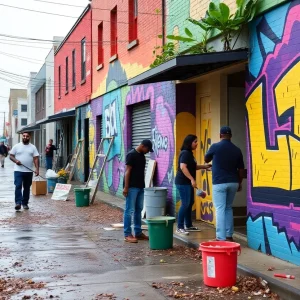Preservation progress with the Black Asheville History Project
Five years after the project began, the Buncombe County Special Collections team is continuing its work of safeguarding the history of African American Ashevillians.
Progress on preservation
In 2019, the staff of Buncombe County Special Collections (BCSC) recognized a gap in their archive. This collection has been home to historical photographs, books, letters, maps, art, and other archival materials about our area ever since its forerunner, the Sondley Library, was bequeathed to the City of Asheville in 1931. Back then, its contents were the personal library of Foster Alexander Sondley, a local attorney and historian. Now — after decades of merges, expansions, moves, modernizations, and working to correct the history of BCSC — the collection is much more than that. But even though there are thousands of materials within the archive, staff saw that it failed to reflect Buncombe County’s African American community. So the Black Asheville History Project was born.
The original goal of the project was to ensure that at least 25% of the BCSC catalog related to the history of African American people locally and regionally, with a projected completion in 2025. However, in the last several years, the team decided they needed a less abstract metric, one that would allow them to estimate accurate numbers. The new collecting goal is that “at least 25% of all new materials brought into the collection reflect the lives and experiences of historically marginalized groups (i.e. BIPOC and LGBTQIA+ folks, women, working-class people).” Because of the shortage of BIPOC stories specifically, though, the focus of the preservation efforts is still Asheville’s Black communities.
Be a part of the project
But the work is far from over, and community engagement is a big piece of what BCSC does. If you know someone who has a story to tell, you can check out an oral history backpack with your library card; the backpack includes materials for recording an oral history interview and resources for donating the recording to the collection. BCSC also has archivist kits with materials for digitizing photographs or documents for personal archiving projects or donation. Except on Mondays, appointments aren’t necessary to visit the collection on the lower level of Pack Memorial Library.






